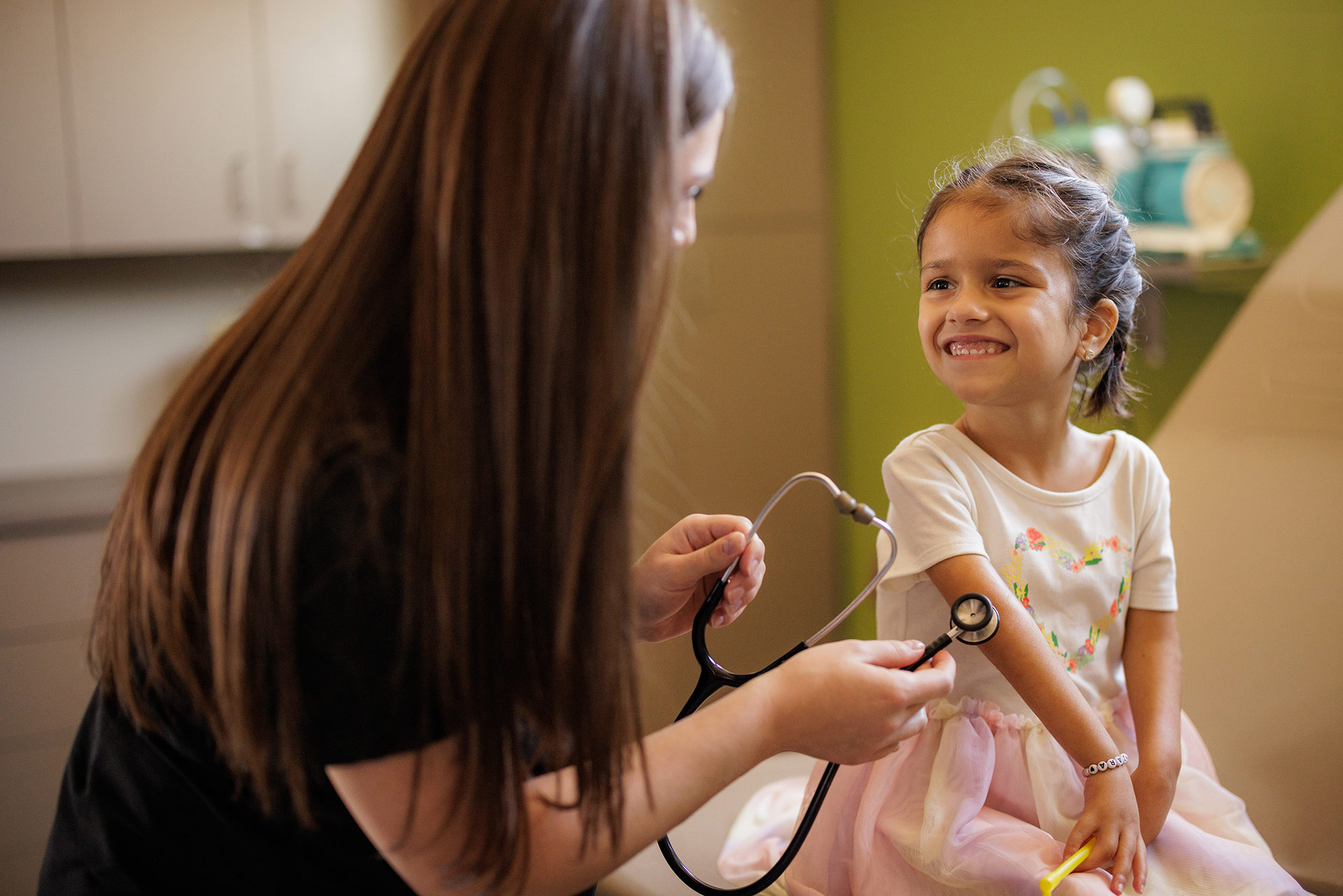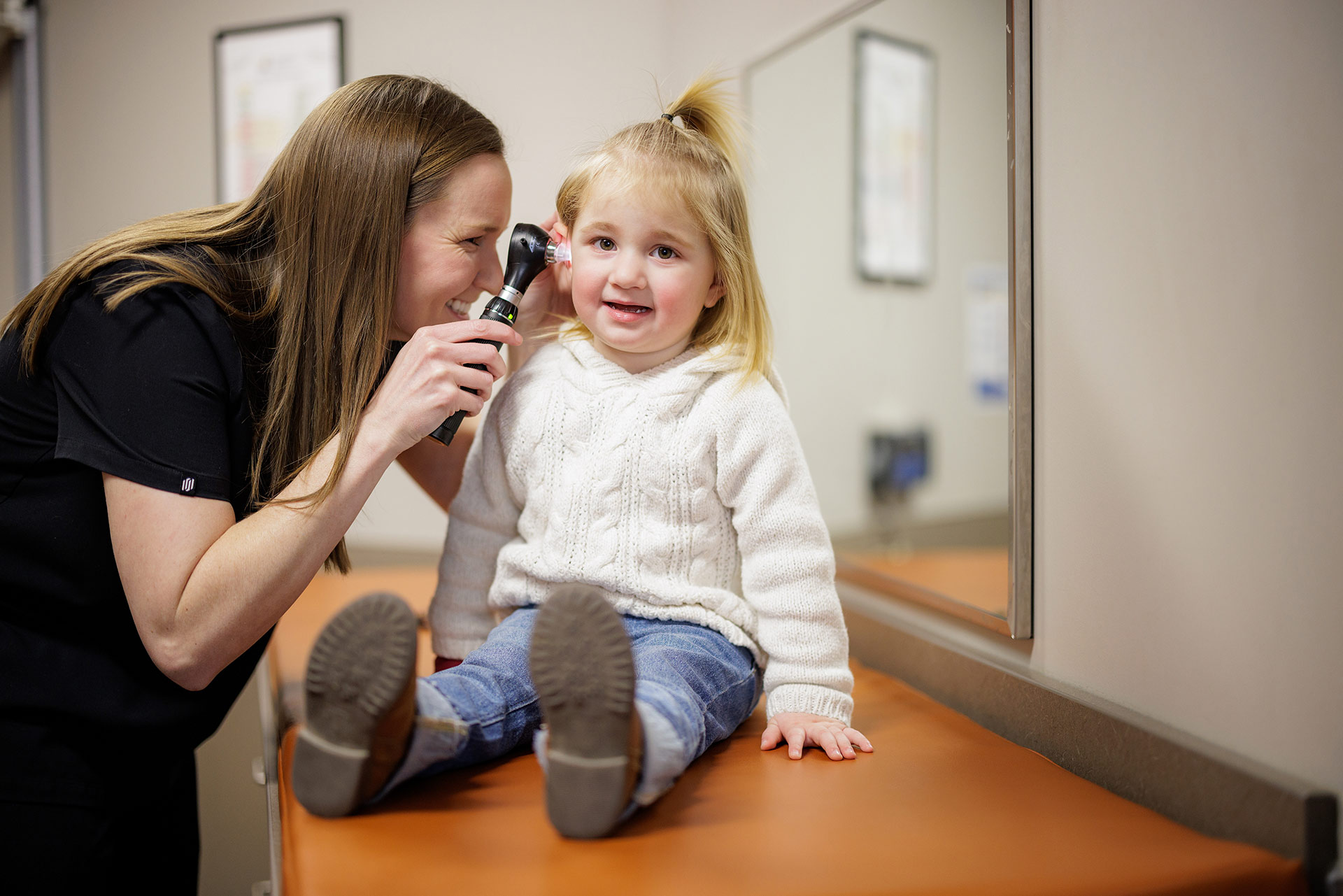How It works
Clinical Research Trials
How clinical Trials are done
Each clinical trial follows a detailed plan called a protocol. A protocol is carefully designed to minimize the risks associated with a study, and to increase the chance of getting useful results, and to answer specific research questions. It includes a description of who can and cannot participate in the study, the estimated length of the study, a detailed description of what is being tested, and how the needed information will be collected.

Why participate in pediatric clinical research trials
They are designed to learn more about ways to prevent, detect, or treat diseases. Clinical trials can help people with chronic (long-term) illnesses find better ways to live each day with their illness. The goal of a clinical trial for children is to find out if a treatment is safe, helpful, and well-tolerated by children. Before you and your child decide if a clinical trial may be a good option for your child, it’s important to know more about the study, including the risks and benefits.
It’s important to study new treatments in children because children are not small adults.
They have different treatment needs than adults and sometimes they have different diseases than adults. Also, doses of medicine, sizes of devices, or types of therapy may change over time based on the child’s stage of growth.
A successful clinical trial can create a new standard of care for children with certain conditions. When there is no standard of care for children with certain conditions, a successful clinical trial can create one; otherwise, treatment may need to be based on what works best for an adult. In recent years, laws have been passed that require pediatric clinical trials for certain conditions. As a result the number and range of clinical trials for children have expanded.

What you need to know
Informed Consent
Assent from Children
You can Leave
Frequently Asked Questions
What are the benefits and risks of a clinical trial?
Possible Benefits
- My child will help provide information that will benefit children in the future.
- My child may have access to new drugs or treatments that are not yet available.
- My child may receive extra care from caregivers
- My child may receive closer monitoring or extra testing that may not be a part of regular care.
- My child (we) may have access to more information about the condition or illness.
Possible Risks
How do I make a decision?
Parents should look to the child’s pediatrician as an advisor before enrolling in, and during, a clinical trial. He or she can help the parent evaluate the risks and potential benefits, clarify the parent’s and child’s understanding of the research, and support the parent and child throughout the research study.
Write down a list of questions at home and take it with you when you meet with the investigator. Make sure you get all of your questions answered.
What questions should I ask about the trial?
About the trial
- What is the purpose of the trial?
- Who is sponsoring or funding the trial? (Sponsors may be organizations or individuals—including medical doctors, foundations, medical institutions, voluntary groups, and biopharmaceutical companies—as well as federal agencies)
- Why do the researchers believe that the treatment being studied may be better than the one being used now? Why may it not be better?
- What kind of tests and treatments are involved?
- How will the doctor know if the treatment is working?
- How and when will we be told about the trials results?
- Will we be told about changes in the study that might make us want to quit the study?
- When do we need to decide about joining the trial?
- Who can answer questions before, during and after the trial?
- Who will be in charge of care?
Benefits and risks
- What are possible benefits?
- What are possible side effects or risks?
- How do possible risks and benefits of this trial compare to those of standard treatment?
- If my child receives a placebo, could that be harmful to his or her care?
Privacy and rights
- How will my child’s health information be kept private? Who will have access to my child’s information?
- What happens if I want to take my child out of the trial?
Costs
- Will I have to pay for any of the treatments or tests?
- What costs will my health insurance cover?
- Who pays the medical bills if my child is injured in the trial?
- Who can help answer questions from my insurance company?
- Are any personal costs such as meals or gas paid for by the organization or individual running the clinical trial?
Time
- How long is the trial?
- How often and for how long will my child have to go to the hospital or clinic?
- Will my child have to stay in the hospital during the clinical trial? If so, how often and for how long?
- How much time will be spent traveling to and from the hospital or clinic?
- Will my child have checkups after the trial?
Other choices
What are other treatment choices, including standard treatments?
How does treatment my child would receive in this trial compare with other treatment choices?
What will happen to my child’s illness or disease without treatment?
Take notes during the discussion. Read the notes back to the investigator to make sure you heard everything correctly. Ask the investigator, “Can I tell you what I think this is about and you tell me if I’m right or not?” If you do not understand any part of the trial, ask more questions. You should feel that the study team is receptive to your questions and concerns. Ask what information is already known about the medical product that your child may be given. Studies may be in progress elsewhere and some data may be available. Ask for contact information if you would like to talk to other parents whose child is participating in the study. The study team can provide this information if they get permission from other parents to have you contact them. After being presented with information and an informed consent document, you do not have to sign it right away. Go home and think about it, talk it over with your family, your child’s pediatrician, and other trusted people. Listen to your “gut.” If you’re not satisfied with the information given to you and the answers to your questions, don’t enroll your child.
What is the lingo?
The following medical and technical words are used by researchers and other professionals involved with clinical trials.
- Assent – when a child agrees to be in a study.
- Blinding or masking – when participants and usually study investigators do not know which medicine or treatment participants are getting until the end of the trial period.
- Informed consent – parents’ permission for their child to join a research study after they have read an informed consent form, spoken with the investigators, read other materials about the study, and asked questions.
- Interventional study – another name for clinical trial.
- Investigators – people doing the research study. People on the research team may include doctors, nurses, research coordinators, social workers, and other health care professionals. Each clinical study is led by a principal investigator, who is often a medical doctor.
- Institutional Review Board (IRB) – an independent committee who ensures that clinical trials are ethical and that the rights of the people in the study are protected. Each clinical trial in the United States must be approved and monitored by an IRB. Members of an IRB include doctors, statisticians, and members of the community.
- Participants or subjects—volunteers who enroll in a research study.
- Placebo – a pill, liquid, or powder without active medicine in it. Placebos are only given to children when withholding treatment poses minimal risks.
- Protocol – detailed plan of the research study
- Randomization – a way to choose what treatment each person in a study gets so that there is less chance of bias. It’s like flipping a coin or rolling dice the results are random and are by chance, not choice.
What is a clinical trial?
A clinical trial is a study using healthy human volunteers to answer specific questions about a new drug, vaccine, or medical device. Carefully conducted clinic al trials are the safest and most efficient way to find treatments and new ways to improve health.